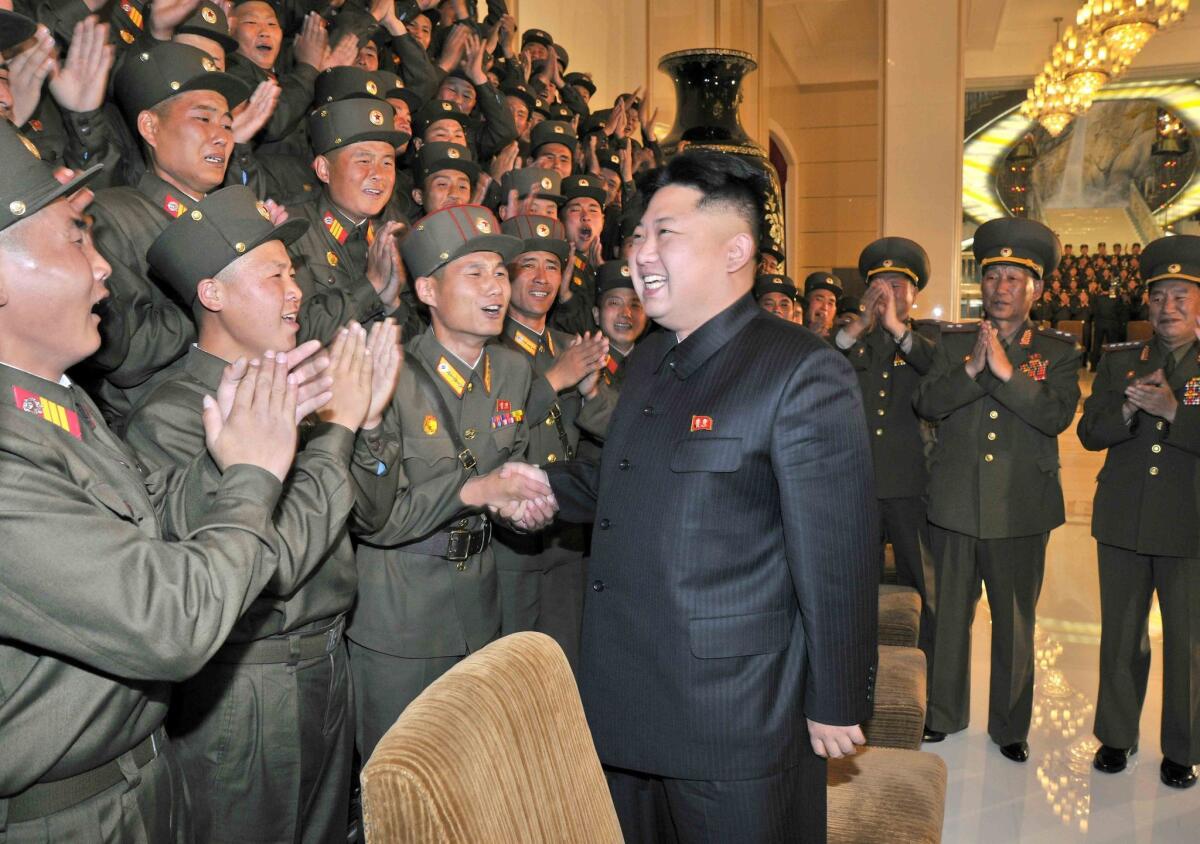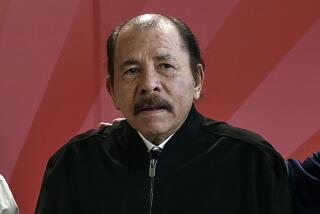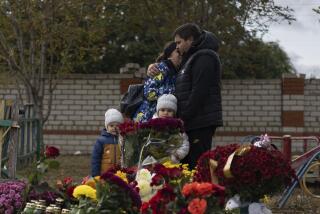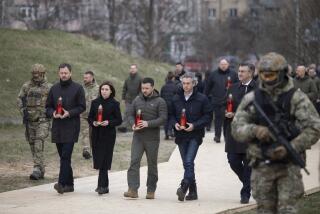U.N. panel accuses North Korea of crimes against humanity

BEIJING – Torture, deliberate starvation and other abuses carried out by North Korean authorities -- possibly on the orders of supreme leader Kim Jong Un himself -- constitute crimes against humanity and should be referred to an international court or tribunal for prosecution, United Nations investigators said Monday.
“These crimes against humanity entail extermination, murder, enslavement, torture, imprisonment, rape, forced abortions and other sexual violence, persecution on political, religious, racial and gender grounds, the forcible transfer of populations, the enforced disappearance of persons and the inhumane act of knowingly causing prolonged starvation,” said a 400-page report unveiled in Geneva by the U.N. Commission of Inquiry on Human Rights in North Korea.
It added that the “gravity, scale and nature of the violations” in the totalitarian state over several decades do not have “any parallel in the contemporary world.”
READ: U.N. findings on Human Rights in North Korea
However, the chair of the panel established by the U.N. Human Rights Council in March 2013, retired Australian chief justice Michael Kirby, said the findings reminded him of the extensive horrors committed by Nazi Germany and other Axis powers and fully revealed only at the end of World War II.
“I hope the international community will be moved by the detail” in this report, which included information from hundreds of witnesses, Kirby said. “Too many times in this building, there are reports and no action.”
Although the report catalogs systematic abuses that have long been reported by human rights activists, defectors, foreign media outlets and foreign governments, the comprehensive nature of the report by a U.N.-appointed panel itself was unprecedented.
The document called for urgent action by the international community, including referral to the International Criminal Court in the Hague. Alternatively, it noted that the U.N. Security Council has the power to set up a special tribunal for North Korea.
However, many observers believe any attempt to take such action would be blocked by China, North Korea’s neighbor and closest ally and a veto-wielding permanent member of the Security Council. The report chastised China for forcibly repatriating some North Korean refugees and for denying some 20,000 children born to North Korean women in China the ability to register for health and educational services.
The U.N. Human Rights Council is to consider the panel’s recommendations at a meeting next month.
North Korea, in a statement provided to news agencies in Geneva, rejected the panel’s findings. “We will continue to strongly respond to the end to any attempt of regime-change and pressure under the pretext of ‘human rights protection,’” it said, Reuters reported.
Wu Haitao, China’s ambassador to the U.N. office in Geneva, said in a letter to the commission that the country did not support the establishment of the panel in the first place. He also reiterated China’s position that North Koreans who enter China “do it for economic reasons” and “are not refugees,” noting that some have committed crimes including “theft, robbery and illegal harvesting” in China.
The report estimated that 80,000 to 120,000 people remain in four large political prison camps in North Korea and noted that in late 2013 there “appeared to be a spike in the number of politically motivated public executions.”
The investigators did note that “market forces” and “technological developments” were starting to bring “transformative socioeconomic changes” to the country, challenging traditional methods of social stratification and control.
As part of the report, the panel published a three-page letter that it sent to Kim, alleging that the abuses were perpetrated by state security officials, the army, the judiciary, the Ministry of Security and the Workers’ Party.
“It is open to inference that the officials are, in some instances, acting under your personal control,” Kirby said.
The report did not list by name any particular officials that panelists believed should be held responsible, although it said it had a database of potential suspects.
The letter to Kim also drew attention to the principles of international criminal law, under which military commanders and civilian superiors can be held responsible for failing to prevent and stop crimes against humanity committed by people under their effective control.
Kenneth Roth, executive director at the New York-based Human Rights Watch, said he hoped the report would “open the eyes of the U.N. Security Council,” which he said had focused only on the nuclear threat posed by Pyongyang and overlooked “the crimes of North Korean leaders who have overseen a brutal system of gulags, public executions, disappearances and mass starvation.”
A U.S. State Department spokeswoman, Marie Harf, welcomed the report, saying that it “clearly and unequivocally documents the brutal reality of [North Korea’s] human rights abuses.”
“We continue to work actively with our partners and with international organizations to raise awareness of and address the deplorable human rights conditions” in North Korea, she added.
Twitter: @JulieMakLAT
More to Read
Start your day right
Sign up for Essential California for news, features and recommendations from the L.A. Times and beyond in your inbox six days a week.
You may occasionally receive promotional content from the Los Angeles Times.







